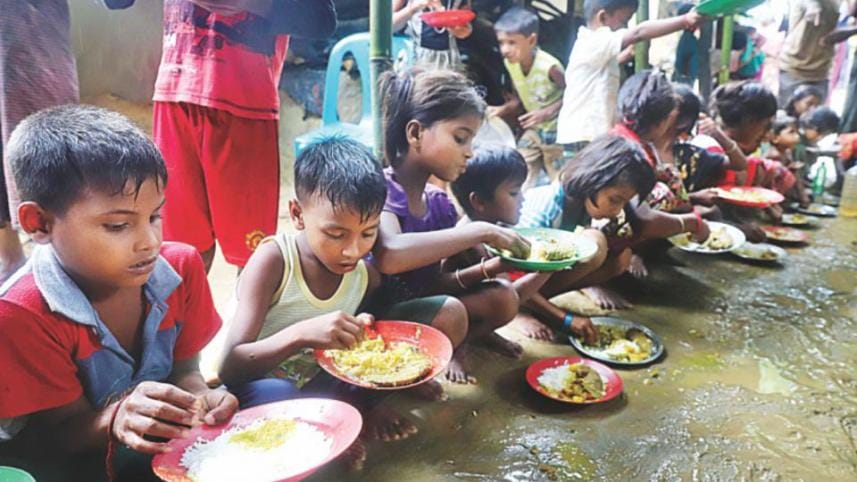Fighting malnutrition in Cox's Bazar

One of the biggest problems facing the stranded Rohingya populace and the locals in Cox's Bazaar is malnutrition. Although the World Food Programme (WFP) has been providing 50 kilos of rice, 9 kilos of lentils, yellow split peas, and 4 litres of edible oil every month to 100,000 households that constitute 700,000 Rohingyas, the problems associated with malnutrition dictate that a more balanced diet be in place. As it is impossible for WFP to supply all that is required, it now intends to introduce an e-voucher programme for 1.2 million people that would include 1 million Rohingyas and 200,000 Bangladeshi nationals.
Each debit card would be loaded with Tk 750 per month and the card holder would be able to purchase 19 different food items from select shops, which would ultimately complement what is already being distributed, in the hope that the daily diet of the target populace becomes more diversified and healthy. It is a timely effort by the UN body and certainly will go a long way in alleviating the pressure our authorities have been facing in feeding such a huge population of people who are here, not by choice, but they are here nonetheless and they need to be fed. While the world has been busy condemning the atrocities committed against the Rohingya, their concerns have not been matched by aid to these people. In this scenario, WFP coming forward to aid our authorities in dealing with this humanitarian crisis is much welcome news.


 For all latest news, follow The Daily Star's Google News channel.
For all latest news, follow The Daily Star's Google News channel.
Comments